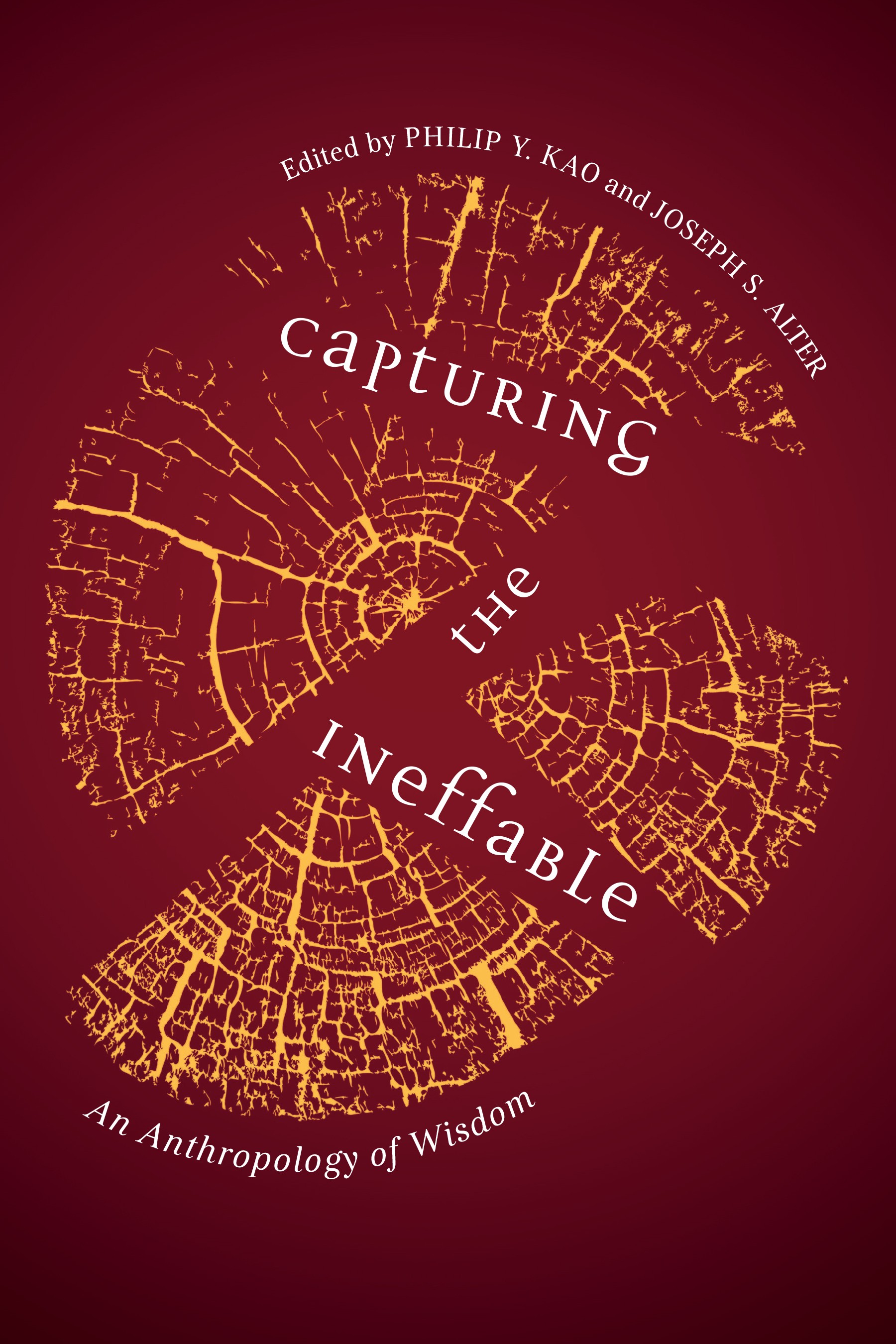Joseph S. Alter
- Professor
Joseph S. Alter is the Director of the Asian Studies Center and Professor of Anthropology at the University of Pittsburgh. In this capacity he has co-edited (with Enrique Dussel Peters and James A. Cook) a volume entitled Connecting China, Latin America, and the Caribbean: Infrastructure and Everyday Life. He is also the editor of The Journal of Asian Studies (2021 – 2025). His research is on environmental health, the globalization of Asian medical knowledge and the cultural history of Yoga’s development within the institutionalized structure of Nature Cure in contemporary India.
Having published on Yoga in relation to sexuality, athleticism and ayurvedic medicine, he is currently studying the way in which Yoga and Nature Cure establish an “ecology of the body” within the rubric of Public Health. His recent publications include, Yoga in Modern India (Princeton, 2004), Moral Materialism (Penguin 2011), Capturing the Ineffable (Toronto 2020, edited with Dr. Philip Kao). Recent essays include:
The Ethics of Yoga and the Spirit of Godmen: Neoliberalism, Competition, and Capitalism in India
The Embodiment of Meaning and the Meaning of Embodiment.
Nature Cure and Public Health: Illness Narratives, Medical Efficacy, and Existential Suffering.
From Lebensreform to Swadeshi: Vithal Das Modi and the Development of Nature Cure in India
Pahalwan Baba Ramdev: Wrestling with Yoga and Middle-Class Masculinity in India
A second project is focused on biosemiotics, ecology, and religion. Building on a series of essays published over the past fifteen years in Ethos, Current Anthropology, and Anthropos, recent publications include:
Biosemiotics and Religion: Theoretical Perspectives on Language, Society and the Supernatural
Biosemiotics and Hominidae History: Technicity, Animals, and the Limitations of Human Exceptionalism
Dr. Alter’s teaching is focused on experiential education. He is the academic director for Pitt in the Himalayas, a study abroad program based at the Hanifl Center for Outdoor Education in Mussoorie, UK, India. For the program he has developed a number of courses including Religion and Ecology, Himalayan Biodiversity, Mountains and Medicine and Yoga and Mindfulness
See also:
Academia.edu: https://pitt.academia.edu/JosephAlter
Researchgate.net: https://www.researchgate.net/profile/Joseph-Alter
Research Description
Current research concerns the practice of Nature Cure in contemporary India. The focus of the project is on the question of how health regimens -- that involve such things as mud baths and hydrotherapy -- produce an embodied ecology of being, and how distinctions of social class relate to the public health implications of this ecology as well as to the problems and politics of environmentalism.
Another current project engages questions of ecology in a different way by using insights from the field of biosemiotics to critique human exceptionalism and develop a theory of society and social value that can be applied to inter-species ethnography.
Earlier research on a range of issues has been published in various books, illustrated and linked below. Recent articles can be found in the list of publications.
Courses
Introduction to Cultural Anthropology
This course is designed to introduce students to cultural anthropological methods and concepts that are useful for gaining a better understanding of human diversity. We will examine such topics as family systems, economic and political change, religion and ritual in order to encourage students to question commonly held assumptions about what is "normal" and "natural" in human experience. Films, videos and slide presentations will supplement texts and lectures. Evaluation of the recitation sections will be determined by the recitation instructor. Attendance, class participation, projects and short quizzes will form the basis of the recitation grade.
Patients and Healers
This course surveys the field of medical anthropology and its history within the discipline of anthropology as a whole, from the perspective of social-cultural theory. Topics dealt with include ethnomedicine, ethnographic cases, cross-cultural studies of healing practices, and connections between medicine and religion. Reference is also made to applied research in contemporary situations.
Himalayan Society and Culture (Pitt in the Himalayas)
The Himalayan region is characterized by a tremendous range of social and cultural diversity that corresponds to climatic, ecological and geographical variation, as well as local and regional geopolitical factors. Historical change from the emergence of early forms of social complexity centered on chiefs and their forts – from which the regional designation of “Garhwal” takes its name – through the development of kingdoms and larger polities shows the intimate link between geography, environment and socio-political transformation. Similarly, local language patterns, regional religious practices, musical styles, mythology, food culture, sartorial fashion, architectural design, agricultural and transportation technologies and engineering and trade networks have all been shaped by the structure of mountain barriers, bounded valley communities and bracketed lines of communication that follow river systems. Whereas the political economy of the Himalayas has been structured around agricultural production, and the development of elaborate field terrace systems, there have also been subsidiary economies centered on trans-Himalayan trade and pilgrimage as well as pastoral nomadism and transhumance. Since the colonial period, the Himalayas have increasingly become a place for rest, relaxation, tourism and adventure, and this – along with further political transformations since Indian independence -- has led to the rapid development of urban areas. This course will provide a survey of Himalayan history, society and culture with a focus on the relationship between nature, the environment and geography.
Religion and Ecology (Pitt in the Himalayas)
The Himalayas have inspired more religious thought, given raise to more forms of religious practice and are more distinctively featured in a spectrum of epic religious literature, than almost any other geographic region in the world, with the possible – but unlikely -- exception of a small parcel of relatively dry hilly ground between Jerusalem and Mecca. In any case, Siddhartha Gautham was born and taught in the shadow of the lower Himalayas, where Buddhism emerged in the 4th century BCE. Many specific mountains, lakes and rivers, as well as the broader geography of the Himalayas – most notably sacred rivers – define the landscape of Hindu mythology, pilgrimage and ritual. The practice of yoga as a metaphysical philosophy is intimately linked to the idea of mystical Himalayan masters. The western watershed of the Punjab, including the eponymous five rivers – Indus, Jhelum, Chenab, Ravi and Sutlej – is the heartland of Sikh cultural and religious identity. In addition to being a center of medieval Hindu literary learning, Kashmir and the western Hamalayas, extending through the Hindu Kush, have defined routes of exchange, communication, conversion and confrontation between Greeks, Persians, Buddhist monks, and Mongol armies. More recently – in terms of centuries – Tibetan Buddhism has emerged out of a history of development in Lhasa – relocated to McLeod Ganj in the early 1960s -- that combines elements of Tantra from the southeastern Brahmaputra region with transmutations of Buddhism that have taken shape in Greater China. Although not inspired by the Himalayas per se, Islam in South Asia has been shaped by geography and the environment in specific ways, and the development of a particular interpretation of the Koran in a small center of learning in the town of Deoband – close to where the epic battle of the Bhagavad Gita is said to have been waged in Kurukshetra – implicates the geography and geopolitics of the Himalayas in the emergence of reform oriented, orthodox Islam.
Mountains, Medicine and Health (Pitt in the Himalayas)
India is a social, political and economic environment in which a broad range of South Asian Medical Systems have grown and developed over the course of several thousand years. In the past 150 years these systems have been institutionalized and professionalized within the framework of colonial and national medical and public health policy. Many of these systems are intimately connected to the environment, and to the conceptualization, categorization, production and consumption of natural resources. This course focuses on non-biomedical systems of medicine: Ayurveda, Unani, Siddha, Tibetan Medicine, Yoga and Nature Cure and Homeopathy, as each one of these is supported and regulated by the Government of India. The purpose of the course is NOT to evaluate the effectiveness or medical value of these systems; it is to understand how these medical systems fit into a range of social, political, ecological, botanical and economic contexts. Given that a number of these medical systems are intimately linked to Himalayan botanical and environmental knowledge, the course will focus on the relationship between South Asian medical systems and mountain ecology.
Publications
Alter, Joseph S. (2020) "Capturing the Ineffable". Edited by Philip Y. Kao. University of Toronto Press.
Alter, Joseph S. (2018) “Wrestling with the History of Yoga as Sport” India International Center Quarterly: Special Issue. Ronojoy Sen, Guest Editor, 44(3&4): 252-265
Alter, Joseph S. (2018) “Masculinities and Culture” in Critical Themes in Indian Sociology. Sanjay Srivastava Yasmeen Arif and Janaki Abraham, Editors. New Delhi: Sage Publications. Pp. 298-312.
Alter, Joseph S. (2017) “Yoga, Nature Cure and “Perfect Health: The Purity of the Fluid Body in an Impure World” in Yoga in Transformation: Historical and Contemporary Perspectives on a Global Phenomenon. Karl Baier and Phillip A. Maas, eds. Vienna: V&R Unipress, a subsidiary of Vandenhoeck & Ruprecht, Wiener Forum für Theologie und Religionswissenschaft, pp. 419-439.
Alter, Joseph S., Dr. R. M. Nair and Dr. Rukmani Nair (2017) “Nature Cure and Non-Communicable Diseases: Ecological Therapy in India.” International Journal of Environmental Research and Public Health. (Int. J. Environ. Res. Public Health 2017, 14, 1525; doi:10.3390/ijerph14121525).
Alter, Joseph S. and Dr. Chandra Shekhar Sharma (2016) “Nature Cure Treatment in the Context of India’s Epidemiological Transition.” Journal of Integrative Medicine 14(4): 245–254.
Alter, Joseph S. (2016) “Medicine, Alternative Medicine and Political Ecologies of the Body” in A Companion to Environmental Health: Anthropological Perspectives. Merrill Singer, editor. Hoboken, NJ: Wiley-Blackwell, pp 121-142.
Alter, Joseph S. (2015) “Gattungswesen – The Ecology of Species-Being: Alienation, Biosemiotics and Social Theory” Anthropos. 110(2015):515-531.
Alter, Joseph S. (2015) “Nature Cure and Ayurveda: Nationalism, Viscerality and Bioecology in India.” Body and Society. 21(1): 3-28.
Alter, Joseph S (2015) “Spirits and Exorcism: On the Semiotics of Healing and Recovery.” Ethos. 42(4): 399-414.
Alter, Joseph S. (2014) “Sri Yogendra: Magic, Modernity and the Burden of the Middle-Class Yogi.” In Gurus in Modern Yoga. Mark Singleton, ed. Oxford and New York: Oxford University Press.

